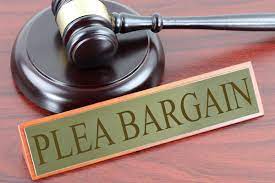Pleading guilty and accepting a predetermined penalty sometimes be the wisest course of action when dealing with criminal allegations. Making such an arrangement is called “taking a plea” or a “plea agreement.” Plea bargains sometimes involve the defendant admitting guilt on one count in exchange for the dismissal of further charges. The purpose of a plea bargain from the defendant’s perspective is to secure the minimum possible sentence.
A defendant who believes he or she will be found guilty at trial may accept a plea deal. A plea bargain is an alternative to going to trial that the prosecutor may provide. Because a guilty judgment at trial is unlikely, the prosecutor may propose a plea deal with reduced charges. For first-time offenders or minors, accepting responsibility and agreeing to the prescribed sentence may be the most effective route to rehabilitation. Click here to learn more.
Should You Agree to a New Jersey Plea Deal?
If the prosecutor is willing to provide a lesser penalty, a suspect may be willing to confess to the crime. A plea bargain occurs when a defendant accepts responsibility for their actions and the prosecution agrees to reduce the charges against them in exchange for their cooperation. Defendants who are prepared to acknowledge guilt or are looking for a more definitive strategy to decrease the threat of long-term jail terms may benefit from negotiating a plea deal.
Thus, if you are considering a plea bargain, the defendant could do well to take it if the prosecutor is offering a very favorable plea bargain.
Examples of such situations could be:
- The time when the accused is ready to tell all.
- When a defendant is willing to take a lesser punishment.
- When a plea deal substantially reduces charges.
To decide whether or not to accept a prosecutor’s offer, a defendant should consult with an experienced criminal defense counsel. An expert lawyer can help you understand the full implications of any agreement you are considering entering into.
Consider consulting with a local attorney who is familiar with the local court system and the law if you are considering a plea bargain. When defense attorneys and prosecutors have a history of working together, they are more likely to be able to put aside their differences and negotiate a favorable plea bargain.











